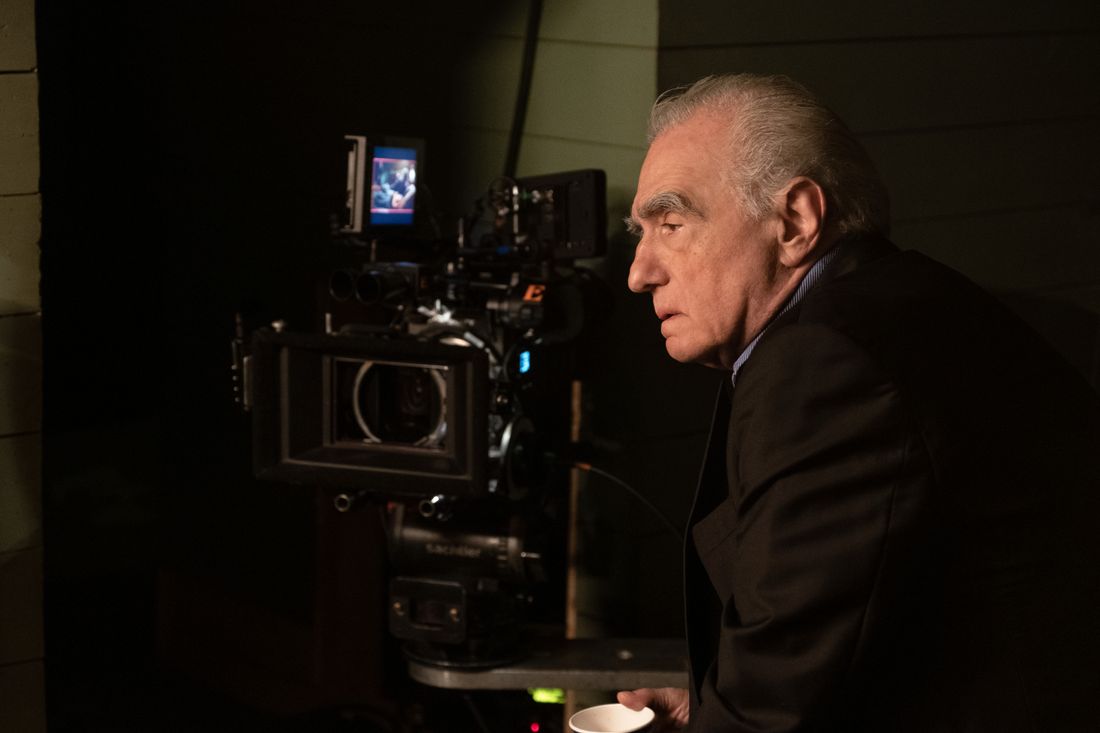
Rebecca Miller’s docuseries, Mr. Scorsese, makes a strong case: there will likely never be another filmmaker quite like Martin Scorsese. Over five episodes, she supports this idea by sharing interviews with Scorsese himself, as well as those closest to him – childhood friends, frequent collaborators like editor Thelma Schoonmaker and actor Robert De Niro, and even his daughters. Miller also expertly uses clips from his films to highlight the recurring themes and influences that define his work, such as drawing parallels between the boxing scenes in Raging Bull and the famous shower scene in Psycho. This series is both insightful and emotionally powerful – it had me in tears within the first few minutes! However, at nearly five hours long, it still feels too short; it barely scratches the surface of his incredible career.
The documentary series *Mr. Scorsese* effectively argues that Martin Scorsese is one of the most important American filmmakers of his generation. It highlights his consistent focus on themes of masculinity, wealth, and how both can damage our sense of right and wrong—themes that reflect who we are as a nation. The series made such a strong case that I found myself wanting even more in-depth analysis; Scorsese’s extensive career could easily have supported many more episodes. In fact, I think a weekly release could have continued indefinitely! Here are twelve aspects of *Mr. Scorsese* that deserve further exploration.
1.
Marty’s guys
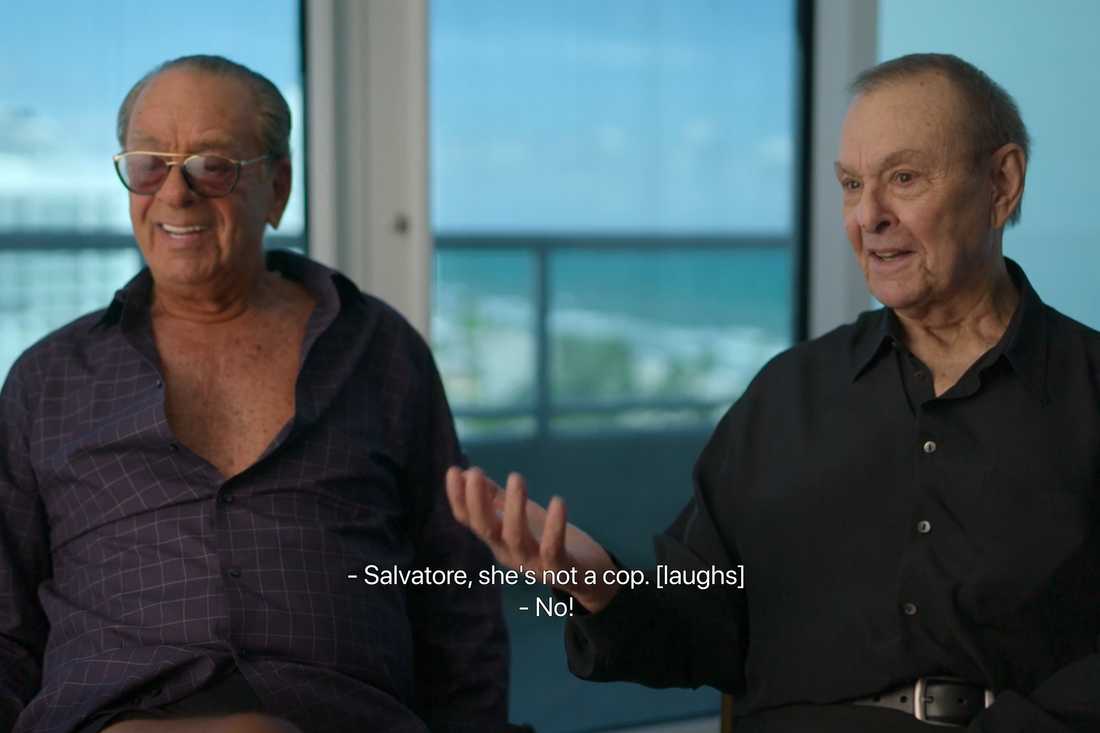
Martin Scorsese’s documentary starts with his early life, showing him revisiting his old neighborhood and the friends he grew up with in the Bowery. It’s heartwarming to see him playfully argue with Joe Morale and Robert Uricola about their shared past, especially considering the violence that was common in their area. These friends add rich detail to Scorsese’s life story, like how his father took him to the movies to help with his asthma, which sparked his passion for filmmaking. Two friends stand out: Dominick Ferraro, who recounts a fight at the West Side Club, and Robert Uricola’s cousin, Sally, who served as inspiration for a character in *Mean Streets*. Ferraro’s story about Scorsese’s reaction after the fight – wanting to film it instead of participate – is particularly memorable, and Sally deserves to tell his own life story. When asked about blowing up a mailbox (as shown in *Mean Streets*), Sally casually admits it and shrugs, saying, “Let them arrest me now,” which is quite funny.
2.
Thelma!
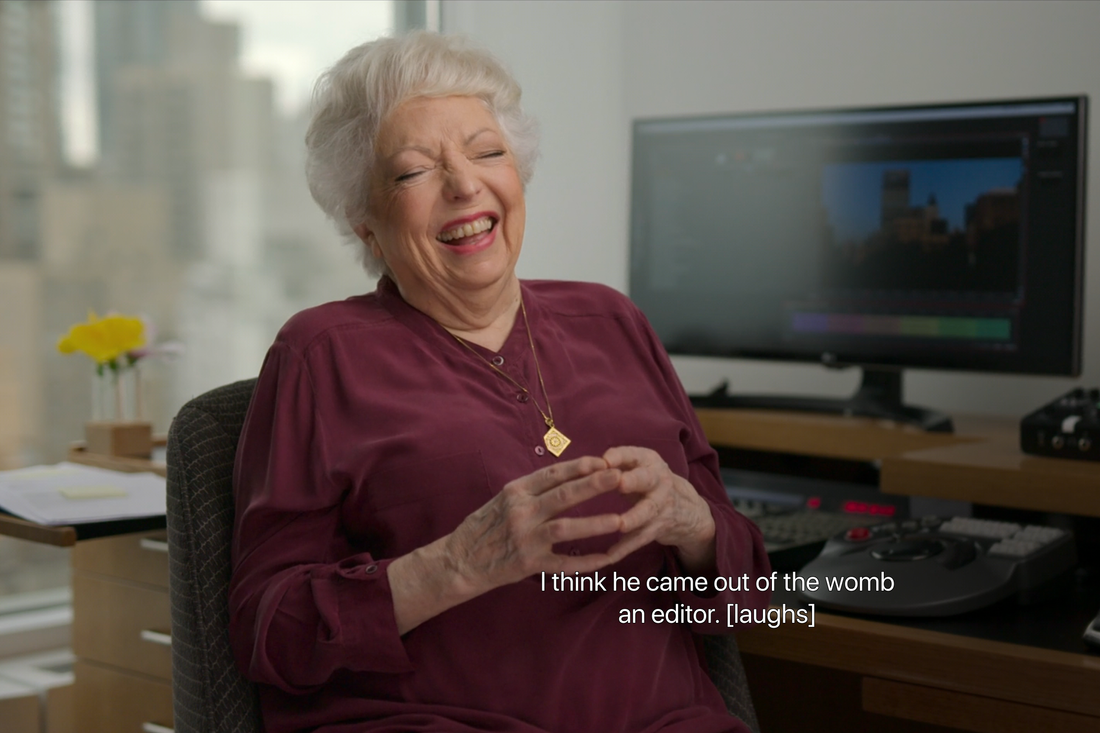
Those who truly appreciate film understand that Thelma Schoonmaker, Martin Scorsese’s editor for decades, is a key reason his movies are so visually striking and well-paced. This article details how Scorsese and Schoonmaker first connected, were briefly separated after Scorsese’s involvement with the 1970 documentary *Woodstock*, and then began their long collaboration with 1980’s *Raging Bull*. Schoonmaker is a uniquely important figure in American cinema, and while the article offered fascinating insights into her work on *Raging Bull* and her innovative use of jump cuts in *GoodFellas*, it would have been even better to have a conversation between Schoonmaker and Scorsese about their earlier projects.
3.
Scorsese’s defiance
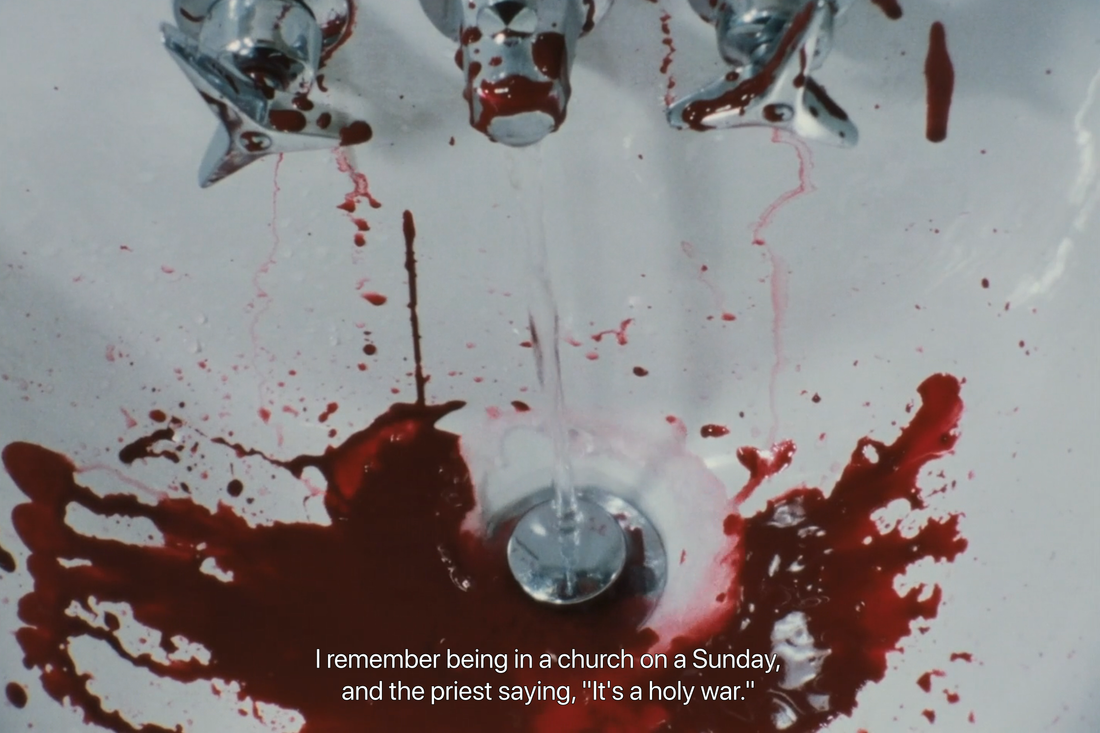
Throughout his career, Martin Scorsese has consistently explored the promises and pitfalls of the American dream. He often approaches this theme through personal experiences, notably the story of his friend Louis Frezza, who died young from cancer. The sight of a massive advertisement for the Continental Can Company overlooking Louis’s grave deeply affected Scorsese, fueling his lifelong critique of capitalism. He felt it symbolized a system that devalued individual life, and this resentment became a central theme in his work, appearing in films like his early anti-war short, *The Big Shave*, and the epic *Gangs of New York*. It’s interesting to note how Scorsese connected the Native American gang in *Gangs of New York* to the Proud Boys, highlighting the cyclical nature of extremist groups. I would have liked to hear him expand further on the political motivations behind his films.
4.
The gossip
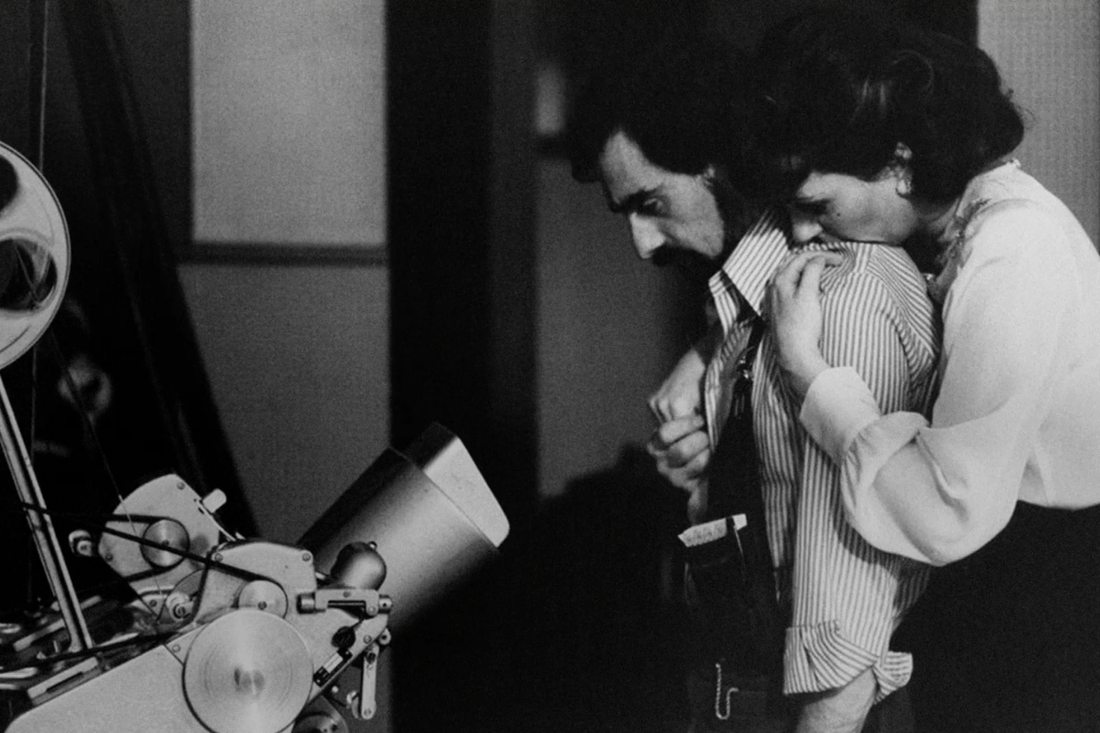
While Martin Scorsese doesn’t seem bothered by the exploration of his past, the series often hints at things without fully explaining them. For example, did he have a relationship with Liza Minnelli during the filming of *New York, New York*? Was there a falling out with Harvey Keitel that led to their three-decade gap in collaborations? And what about Steven Prince, the focus of Scorsese’s 1978 documentary *American Boy*? Prince was an actor and assistant during Scorsese’s struggles with cocaine, and he reportedly inspired a character in Quentin Tarantino’s *Pulp Fiction*. A detailed *New Yorker* profile of Prince came out five years ago, but Scorsese refused to participate. It would be interesting to hear his take on that period. Scorsese didn’t need to reveal everything, but he’s lived a full life, and many viewers are hoping for some juicy details.
5.
Isabella Rossellini, in perfect ex-wife mode
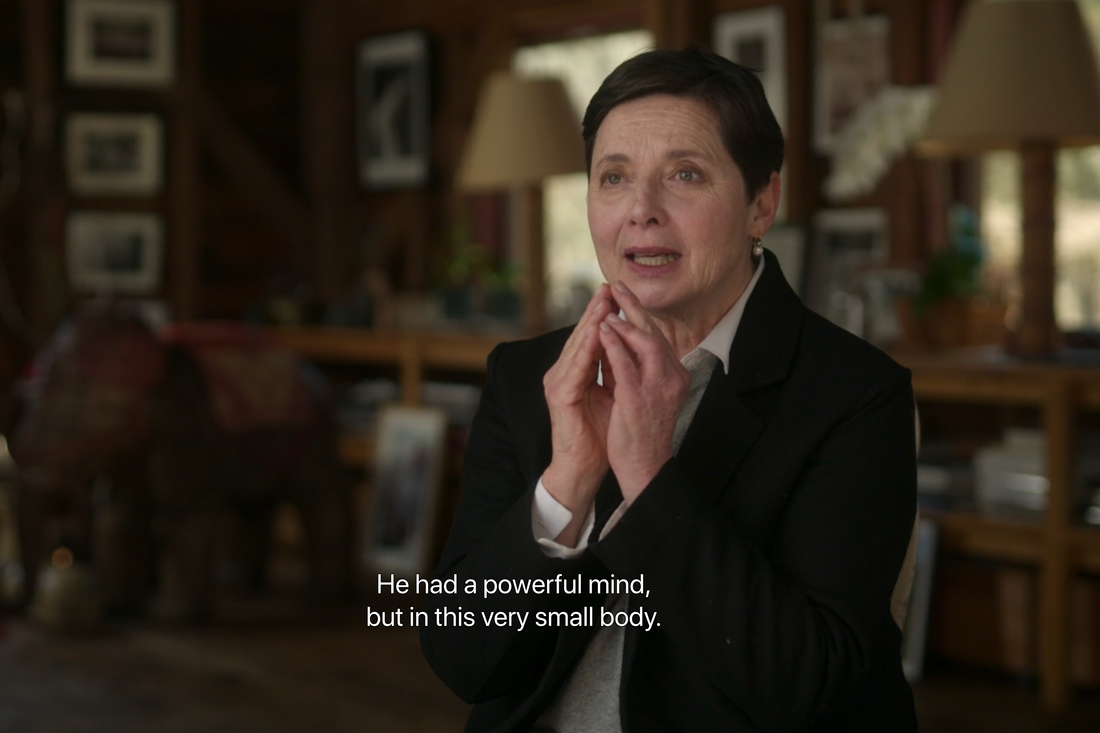
This is how you talk about an ex: with warm affection and a sly read.
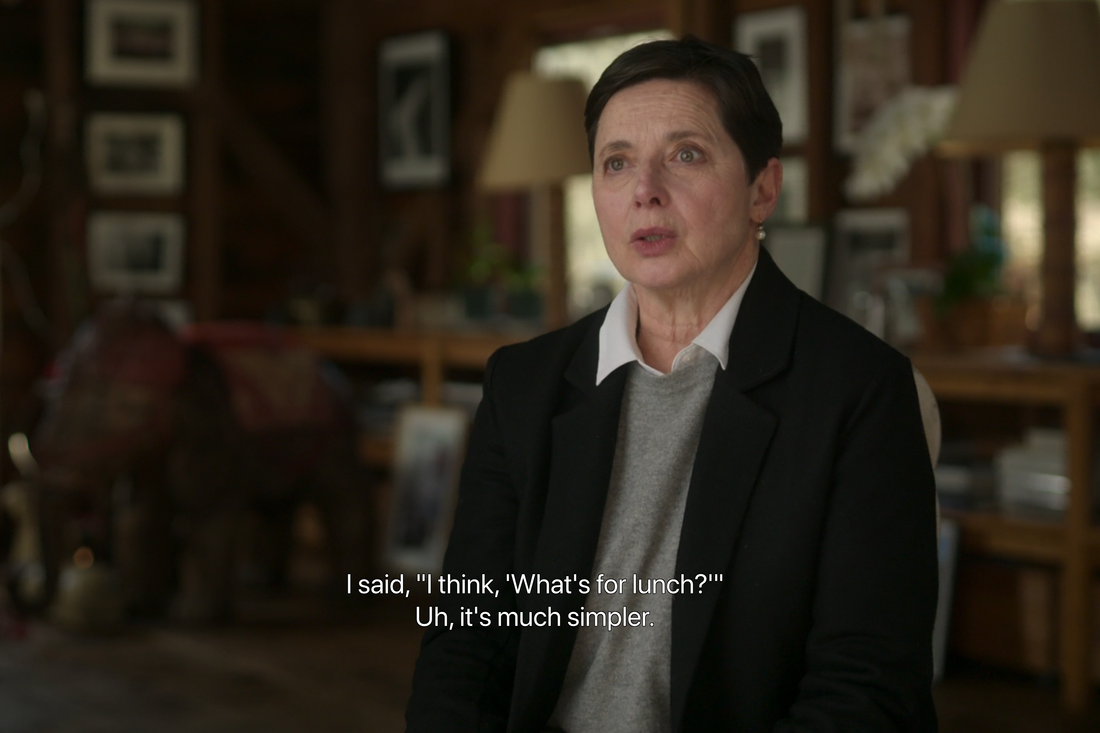
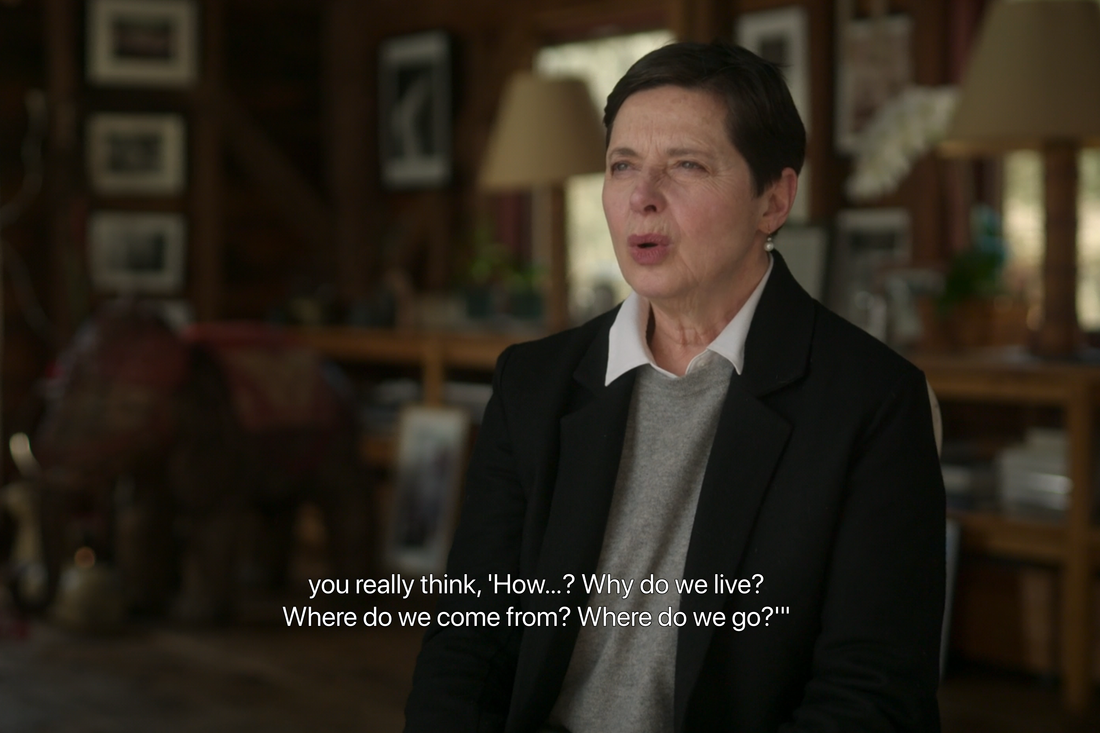
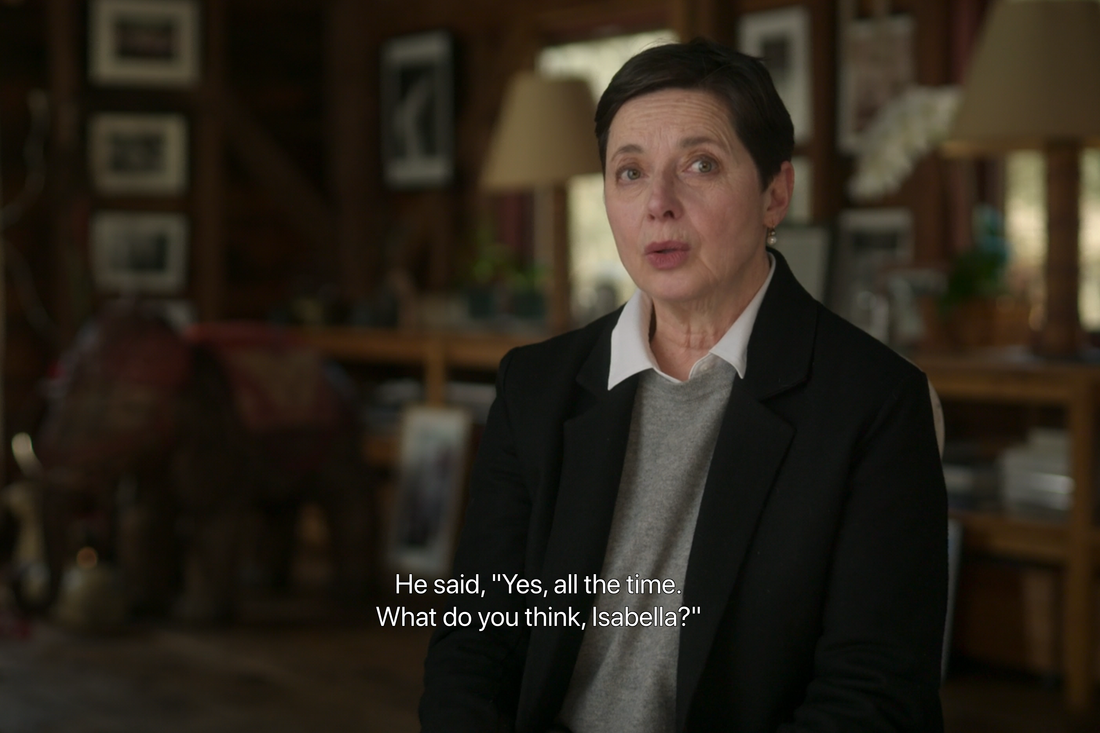
She’s spot on – sometimes it really is simpler to just focus on what you’re going to eat! We need to see more of Isabella playfully poking fun at Marty for getting lost in deep, gloomy thoughts.
6.
Scorsese talking shit about Harvey Weinstein
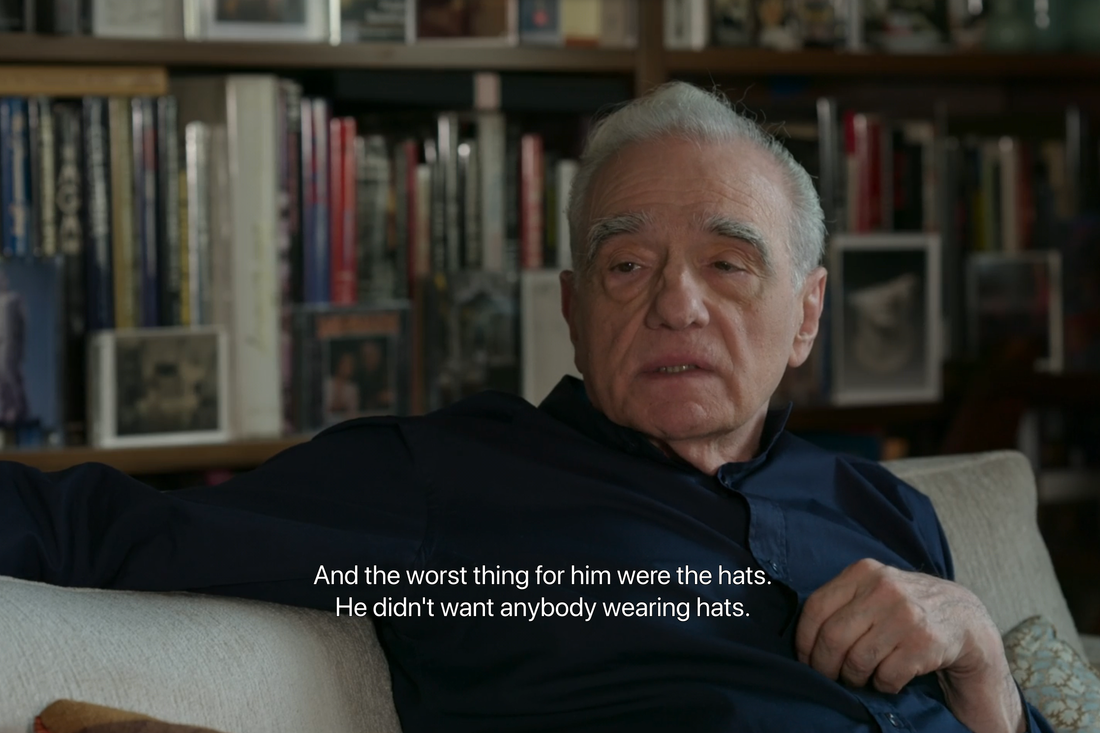
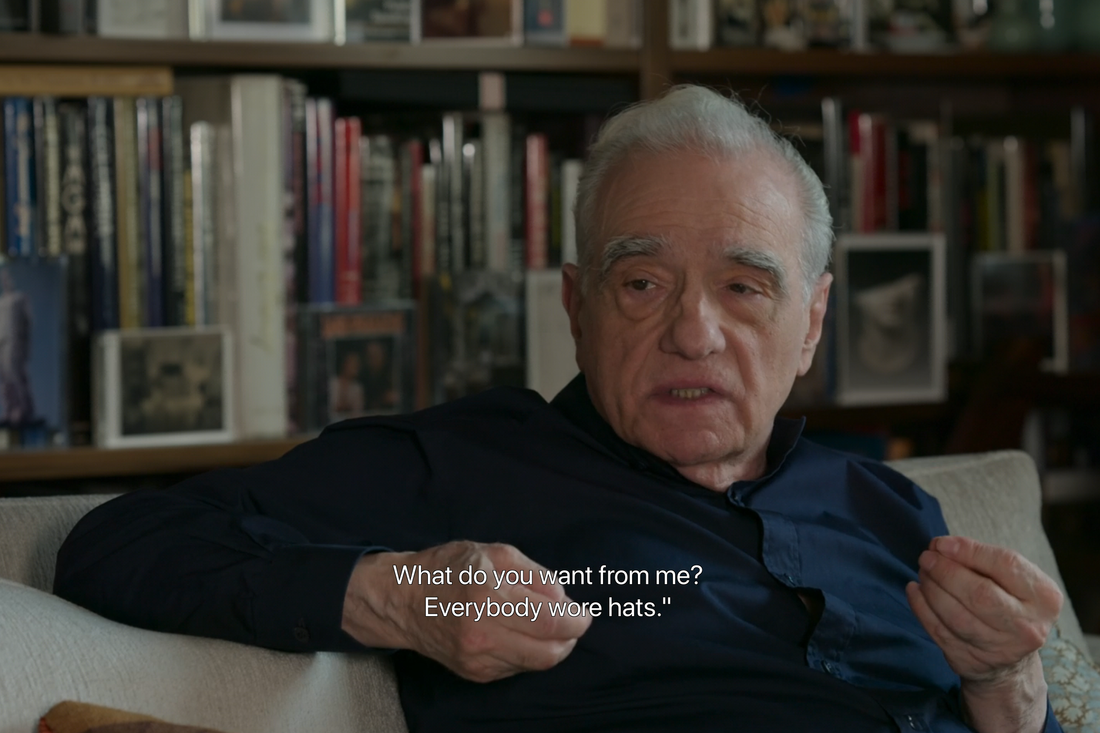
It’s really funny to see Martin Scorsese and his writer, Jay Cocks, now criticize Harvey Weinstein, especially considering Weinstein produced their film *Gangs of New York* and they often clashed. I’ve watched a clip many times where Scorsese, clearly frustrated, explains how Weinstein wanted to reduce the costume budget because he didn’t get why so many characters wore hats. I could listen to Scorsese complain about Weinstein for hours.
7.
Scorsese talking about the Oscars
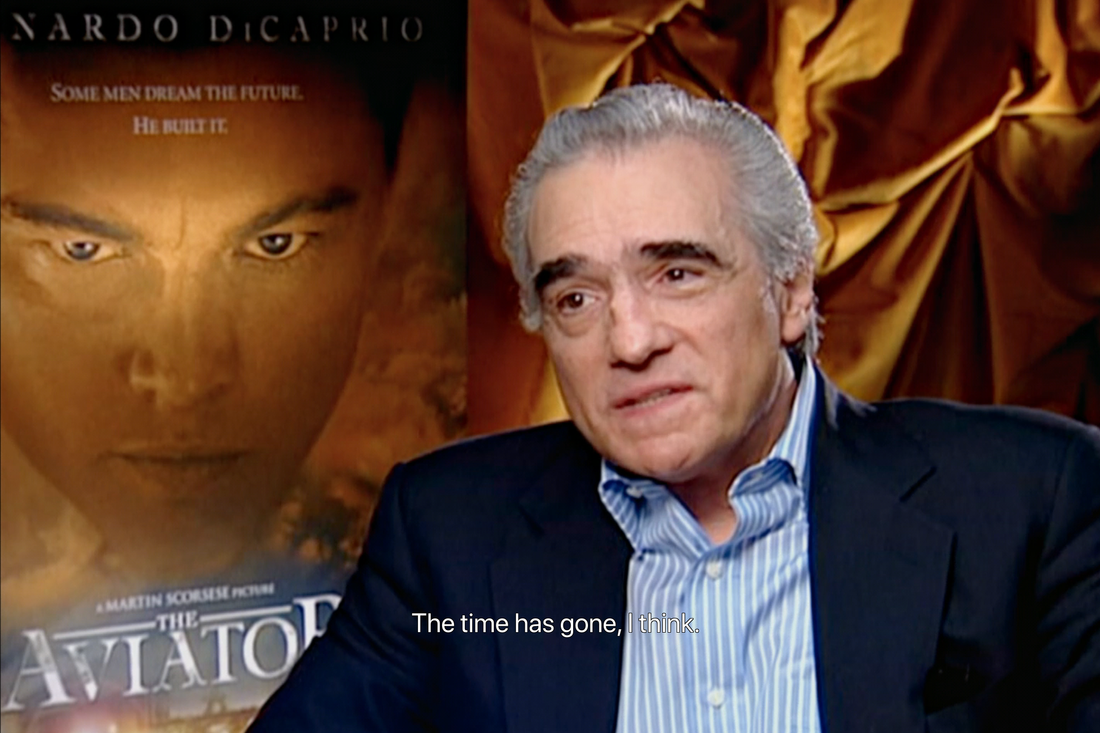
As a huge Scorsese fan, it drives me crazy that despite over 100 Oscar nominations, he’s only won Best Director once – for *The Departed* back in 2006. I remember seeing an old interview from 2004 where he said he didn’t really care about winning one anymore, but honestly, that’s not good enough! Billie Eilish is only 23 and already has *two* Oscars. It doesn’t matter what the categories are, it’s just about recognizing a true master. Rebecca Miller, please use your connections and get to the bottom of why the Directors Branch has consistently overlooked him. I’m ready and waiting for a documentary where all of Scorsese’s peers are asked to explain their lack of appreciation for his work!
8.
That time Scorsese went a little Travis Bickle
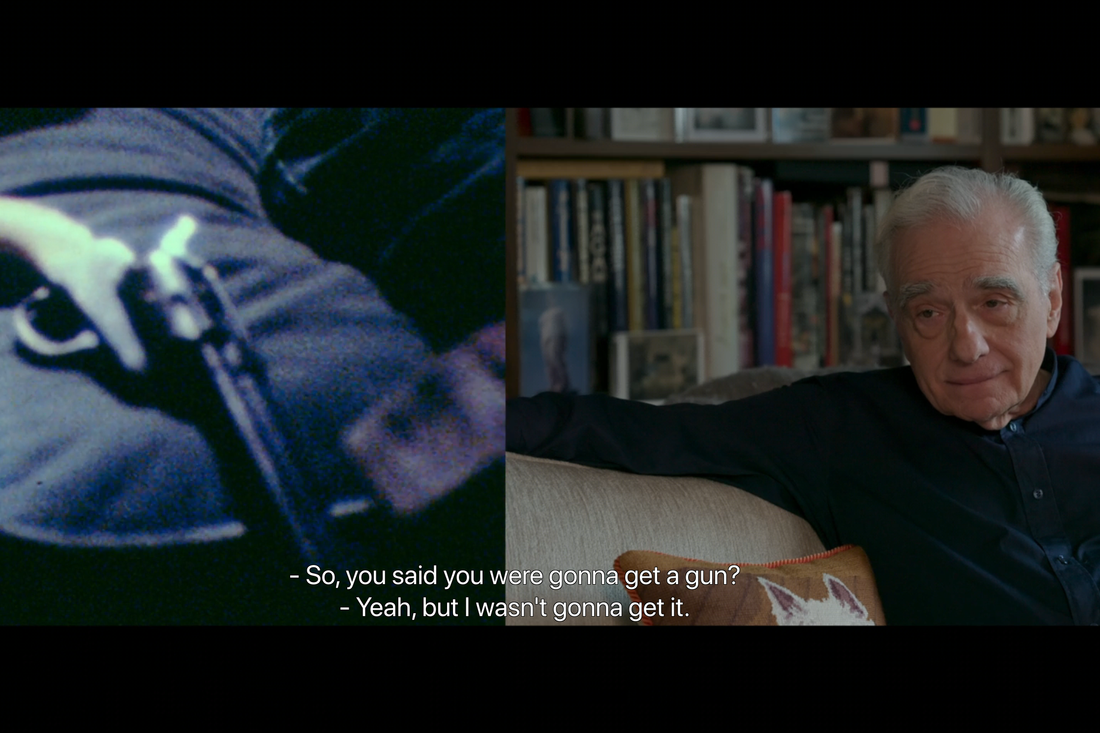
Martin Scorsese’s *Taxi Driver* was a bold and impactful film for American cinema, portraying a troubled man consumed by his own thoughts, fixations, and a rigid sense of right and wrong. It initially received an X rating, prompting the studio to demand cuts to earn an R rating. This created a conflict – a classic artist versus studio battle – which took an unusual turn when Scorsese reportedly threatened the studio head. Steven Spielberg and Brian De Palma recall Scorsese joking about getting a gun, a story he now downplays, though he admits he was prepared to fight fiercely for his artistic vision. He acknowledges that the idea of violence, even in himself, was frightening, but he was willing to go to extremes to protect his work. It would be fascinating to learn more about whether Scorsese felt pressured to resort to such tactics when defending his other films.
9.
The cocaine
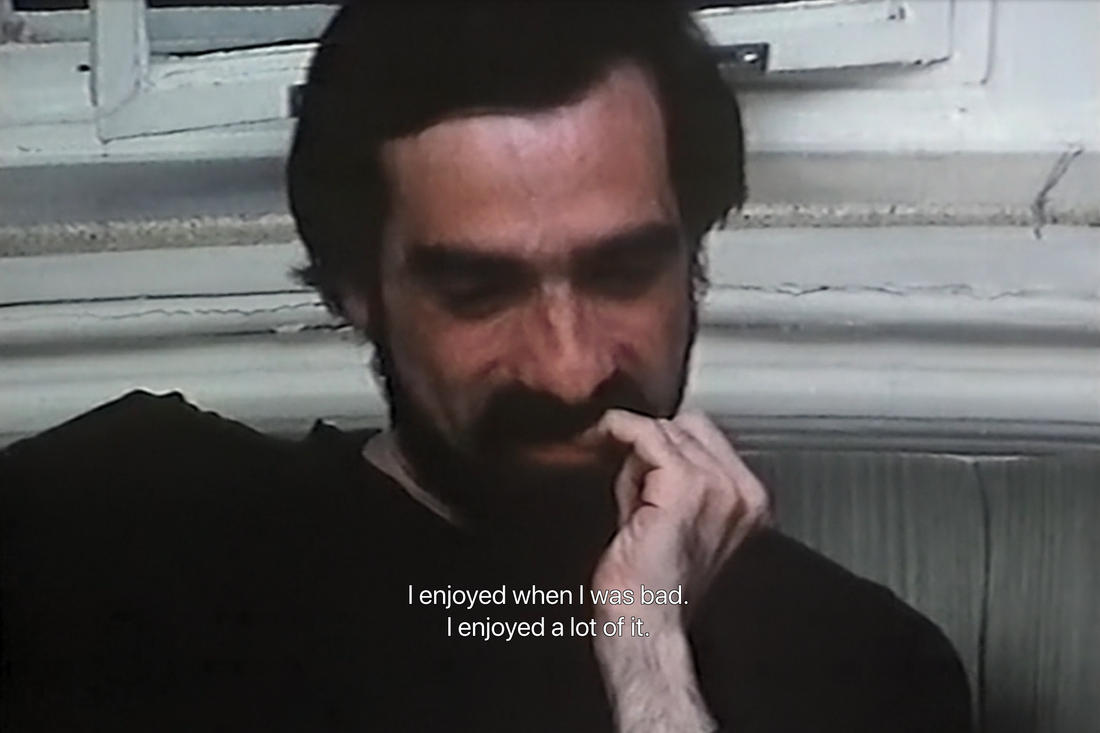
Hearing about Scorsese’s struggles with drugs in the 70s was really tough. The story of him waking up covered in bruises and finding out he was internally bleeding is just heartbreaking, and honestly, I felt like learning any more detail would be a bit intrusive. What struck me, though, was the connection to De Niro. Apparently, De Niro visited Scorsese in the hospital and challenged him to get well and make *Raging Bull*. It was a really powerful moment, and I actually teared up when Scorsese recounted simply saying, “Okay.” It made me wonder, though, how much Scorsese felt he owed De Niro after that. Did that gratitude influence his choices later on? He’s admitted not loving every film they did together, like *The King of Comedy* or even feeling unsure about *Cape Fear*, and I kept thinking if he took those projects partly because De Niro had been there for him when he needed it most. It would have been great to explore how hitting that low point impacted his collaborations a little more deeply.
10.
Scorsese’s relationship with fame
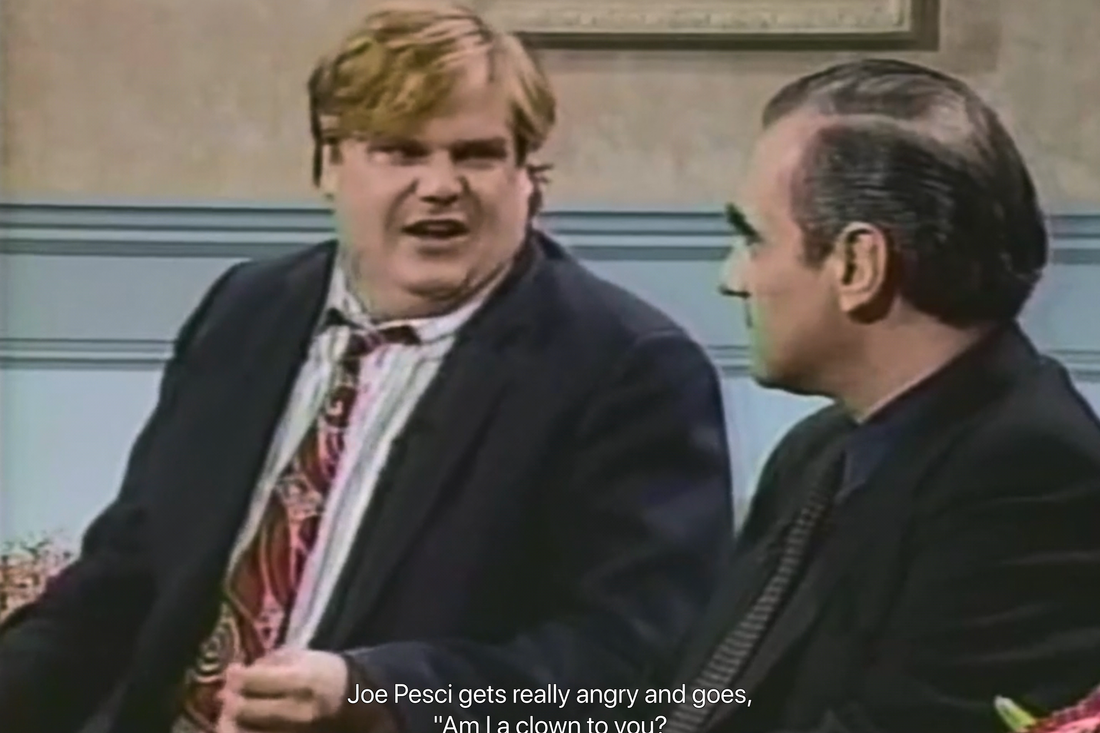
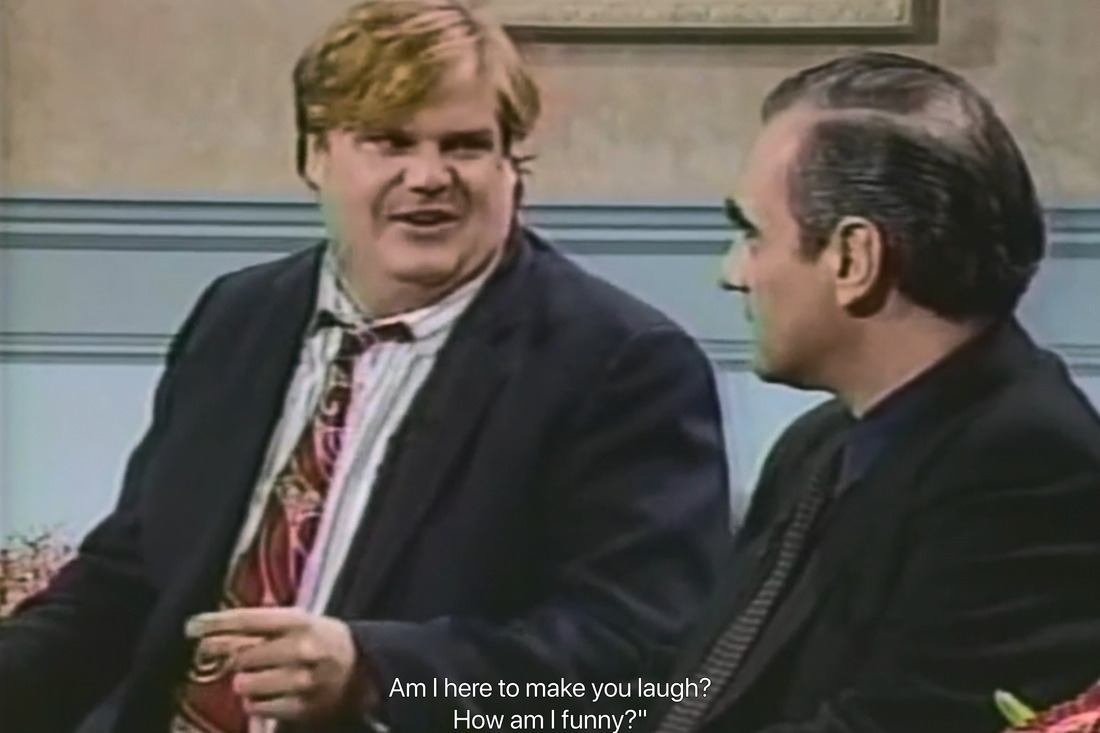
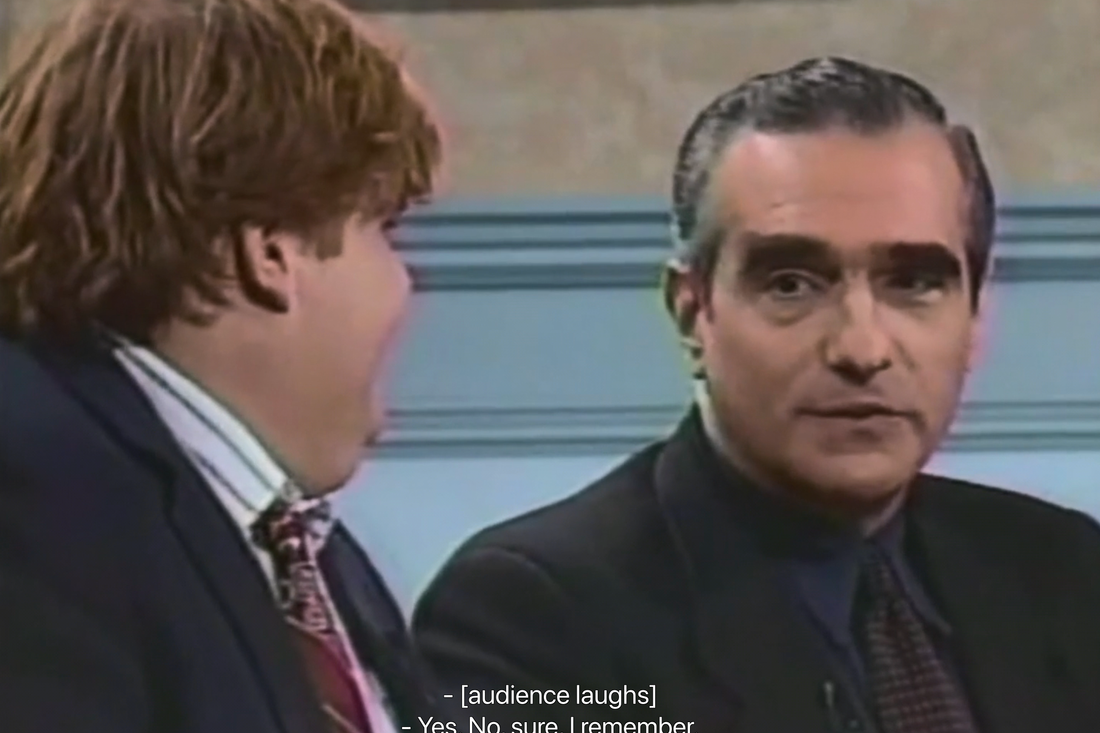
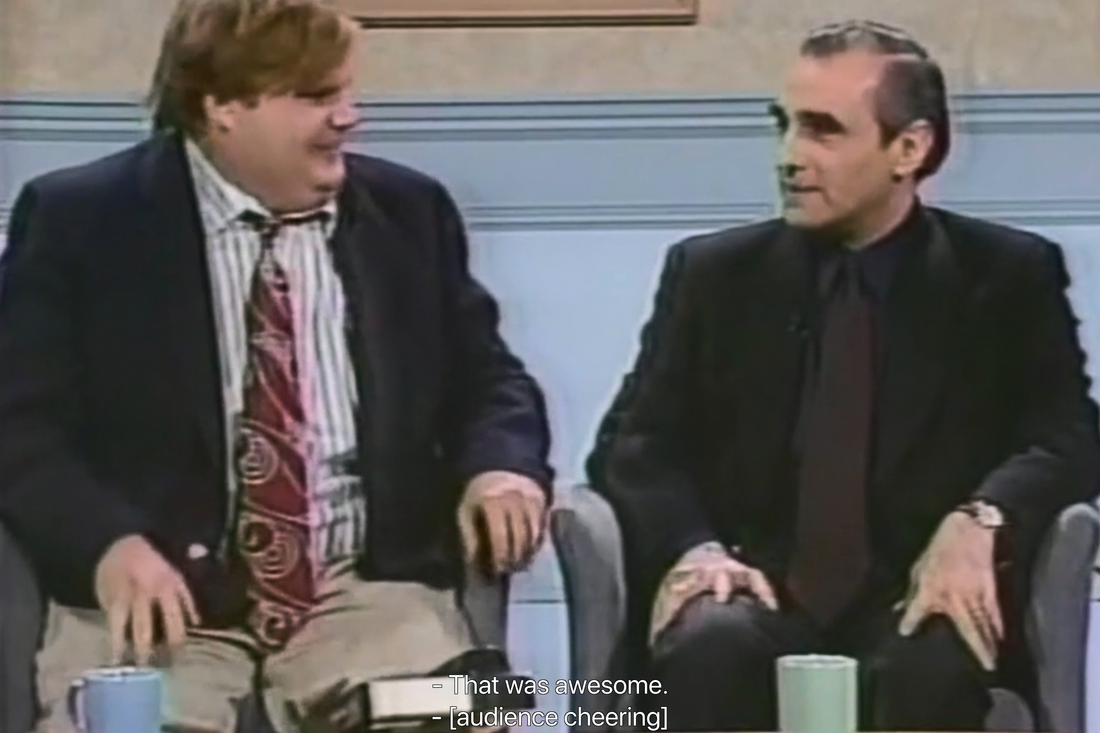
Martin Scorsese has been a public figure for decades, and his fame has been a complex issue – the FBI even provided him with protection twice, once after the shooting of President Reagan by a man inspired by his film *Taxi Driver*, and again after the controversial release of *The Last Temptation of Christ*. Many people are familiar with him through social media, thanks to his daughter Francesca’s popular TikToks and Instagram posts, or through comedic portrayals like those on *Saturday Night Live*. This makes his own feelings about fame particularly interesting. His daughters often discuss his discomfort with it, recalling times he rarely left home except for work. While Scorsese rarely speaks about the impact of celebrity on his life, it’s worth considering how he navigates not being able to enjoy New York City with the same freedom he once had.
11.
The lost movies
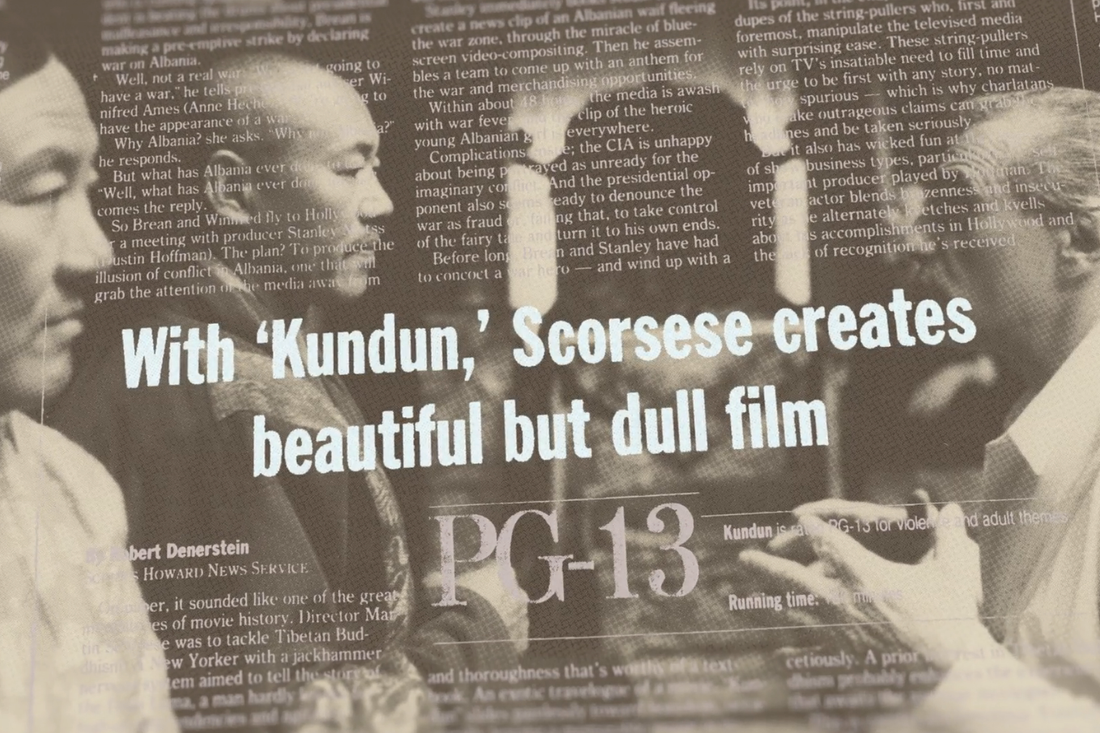
Everyone remembers the controversy around *The Last Temptation of Christ*, with its depiction of Jesus and the backlash from the religious right. But I was surprised how little attention the documentary gives to *Kundun*, Scorsese’s film about the Dalai Lama. It’s mentioned briefly, dismissed as pretty but slow. What’s really fascinating – and largely ignored – is what happened *after* the film was made. Disney, facing pressure from the Chinese government, drastically limited its release. In fact, the then-CEO, Michael Eisner, actually *apologized* for making it, saying he was glad nobody saw it! To this day, *Kundun* is incredibly hard to find – limited physical copies, no streaming options here in the U.S., and rarely shown in theaters. It feels like a significant story that deserved a much deeper dive.
12.
The cut-for-time movies
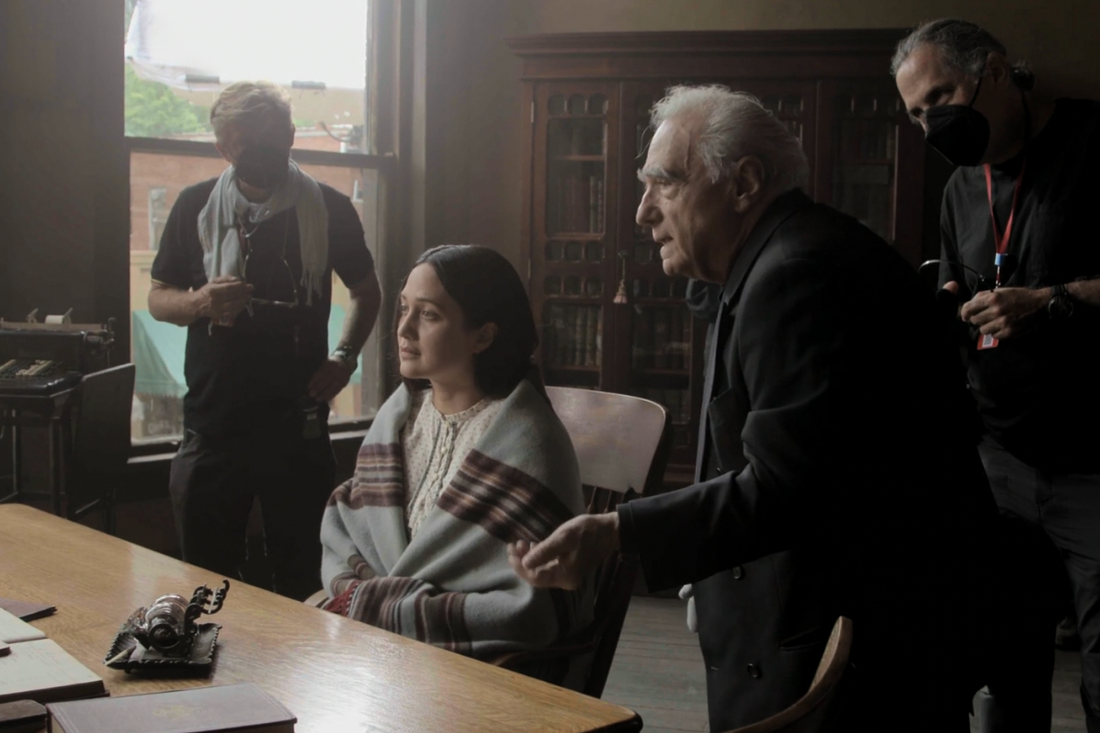
As a huge Scorsese fan, I was a little disappointed by how briefly some of his films are covered in this series. Movies like *Cape Fear*, *Bringing Out the Dead*, and *Hugo* get just a quick mention and a short clip – not much if you’re a devotee. But honestly, the biggest letdown was *Killers of the Flower Moon*. It’s one of my absolute favorites, and even though it’s an Apple TV+ film like the series itself, Scorsese only gives it a few minutes at the very end, tucked into the ‘Method Director’ section. We see him prepping and directing, but there’s no real talk about *why* he made that film, what drove him to tell that story. It feels like he finished the series before *Killers of the Flower Moon* really had its moment. They could have *really* encouraged Apple TV+ subscribers to go watch it! Leaving out a proper discussion of his most recent work makes the whole thing feel rushed and, frankly, leaves the series feeling incomplete. Seriously, where was Lily Gladstone? It just felt…off.
Read More
- Movie Games responds to DDS creator’s claims with $1.2M fine, saying they aren’t valid
- The MCU’s Mandarin Twist, Explained
- All Golden Ball Locations in Yakuza Kiwami 3 & Dark Ties
- These are the 25 best PlayStation 5 games
- SHIB PREDICTION. SHIB cryptocurrency
- Scream 7 Will Officially Bring Back 5 Major Actors from the First Movie
- Server and login issues in Escape from Tarkov (EfT). Error 213, 418 or “there is no game with name eft” are common. Developers are working on the fix
- Rob Reiner’s Son Officially Charged With First Degree Murder
- MNT PREDICTION. MNT cryptocurrency
- Gold Rate Forecast
2025-10-17 22:56